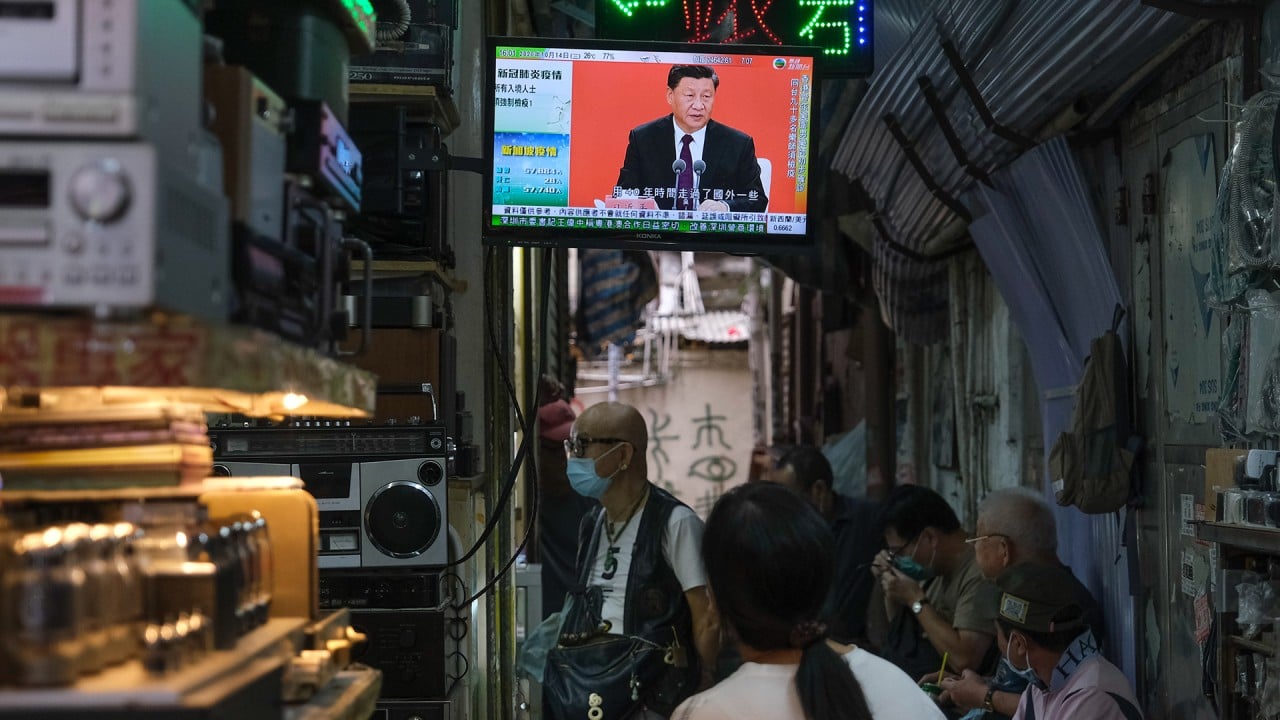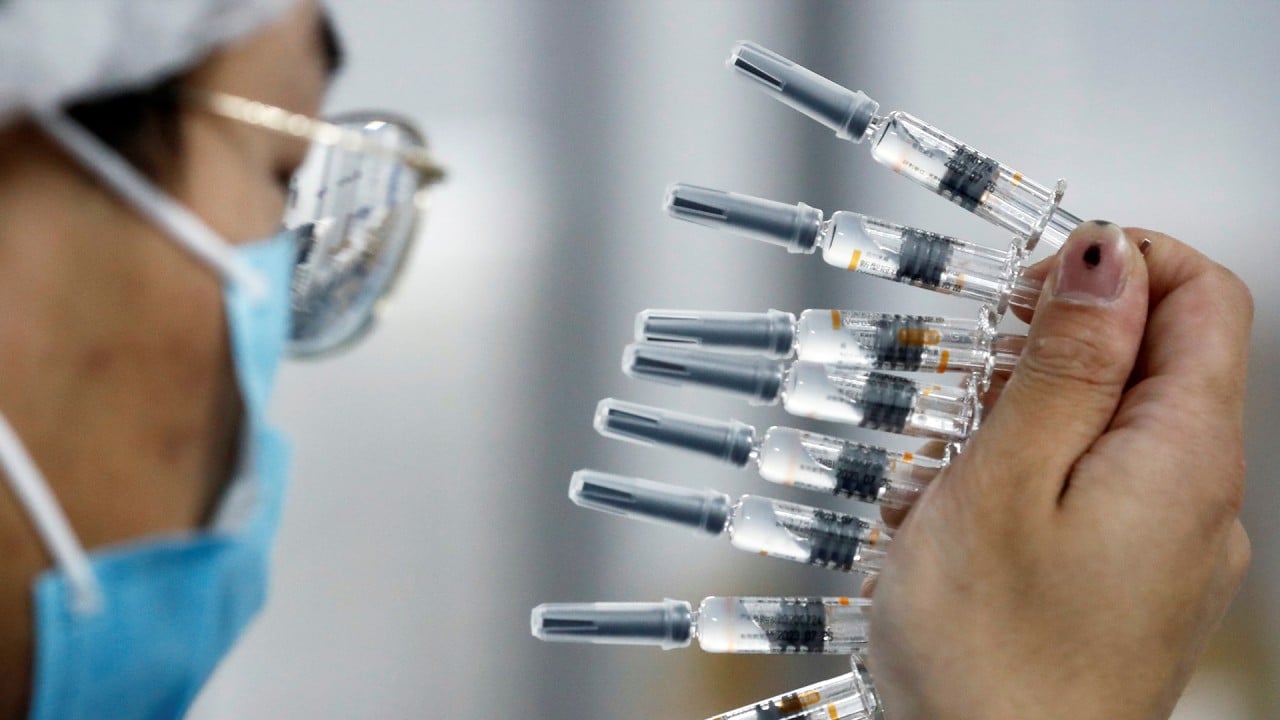
US, China must continue coronavirus stimulus to help recovery from ‘crisis like no other’, IMF’s Georgieva says
- IMF managing director Kristalina Georgieva says the US and China must continue to strong stimulus to help the world recover from the coronavirus
- International cooperation on Covid-19 vaccines could speed up the world economic recovery and add US$9 trillion to global income by 2025
The United States and China needed to keep up strong stimulus to help speed the global economy’s recovery from the novel coronavirus pandemic, International Monetary Fund (IMF) managing director Kristalina Georgieva said on Thursday.
A faster recovery also depends on strong cooperation to develop and distribute Covid-19 vaccines evenly worldwide, but could add nearly US$9 trillion to global income by 2025, Georgieva told a news conference after an IMF steering committee meeting.
“This is a crisis like no other,” she said at a closing news conference. “It calls for steps to enable a recovery like no other.”
Georgieva said the US has the fiscal space and monetary policy capacity to pump out more economic stimulus. US spending so far during the pandemic has had a very positive impact on the rest of the world and its influence “cannot be overstated,” she said.

05:27
China must rely on its ‘internal market for innovation’, says sociology Prof Lau Siu Kai
US President Donald Trump on Thursday offered Democrats to raise his latest offer to $1.8 trillion, but Republican Senate majority leader Mitch McConnell favours a far smaller $500 billion figure.
Georgieva said it was up to US authorities to decide the “exact sequencing” of any further stimulus, “but it has been an important positive impulse and we would like to see how it would be continued again.”
She later told a CNBC panel that she has “no doubt” that the US would deploy further fiscal stimulus, and said it would “have a positive impact whenever it comes”.
Until we have a durable exit from the health crisis everywhere, the recovery would remain uneven and uncertain
“We are of course keen to see that lifelines for businesses and for workers are sustained. This is our main message – don’t cut prematurely these lifelines,” Georgieva told the news conference.
China’s joining international efforts to develop and widely distribute vaccines would boost confidence that the pandemic can be ended more quickly, Georgieva said.
“Until we have a durable exit from the health crisis everywhere, the recovery would remain uneven and uncertain,” she said.
The crisis threatens to leave long-lasting scars on the global economy, such as weaker productivity growth, heavier debt burdens, heightened financial vulnerabilities and higher poverty and inequality
The policy-setting panel of the 189-nation IMF concluded Thursday’s virtual meeting with a joint statement that warned of permanent damage from the worst global downturn since the Great Depression of the 1930s unless countries are given further economic support.
“The crisis threatens to leave long-lasting scars on the global economy, such as weaker productivity growth, heavier debt burdens, heightened financial vulnerabilities and higher poverty and inequality,” the IMF panel said.
The IMF’s communique said it was committed to supporting “the most vulnerable countries and people.” It endorsed a six-month extension of a suspension on debt payments that was approved Wednesday by the Group of 20 major industrial countries.
The IMF panel urged the G20 to go further and adopt at a meeting next month a framework for managing the crushing debt burdens of many low-income countries.

02:40
If China’s coronavirus vaccines work, which countries will get them and for how much?
International aid groups say rich nations should not merely suspend debt payments but forgive large chunks of debt that are leaving poor countries unable to devote their limited resources to health care and other urgent needs during the pandemic.
The fall meetings of the IMF and its sister lending organisation, the World Bank, were held virtually against a grim backdrop of the damage the pandemic has inflicted on the world.
In its economic outlook, the IMF forecast that global growth would shrink 4.4 per cent this year, which would mark the worst downturn since the Great Depression. And the World Bank forecast that the pandemic could send an additional 114 million people into extreme poverty, defined as living on less than US$1.90 a day.


